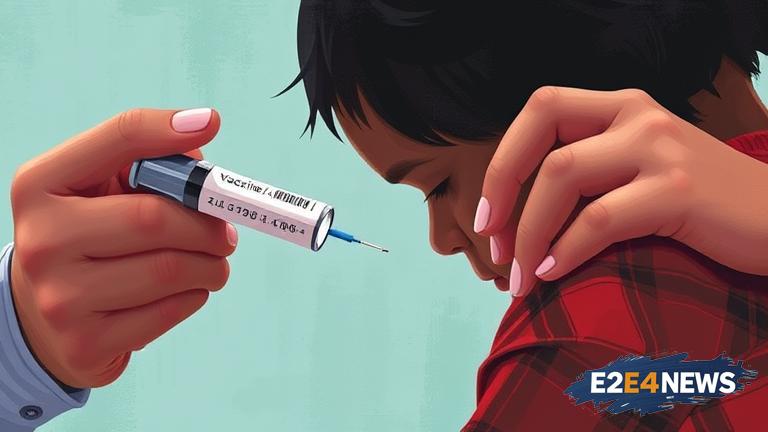The American Academy of Pediatrics (AAP) has recently taken a strong stance on vaccine exemptions, urging policymakers to eliminate almost all exemptions for children. This move is aimed at increasing vaccination rates and preventing the spread of vaccine-preventable diseases. The AAP cites the importance of herd immunity, which protects vulnerable individuals who are unable to receive vaccines due to medical conditions. By eliminating exemptions, the AAP hopes to reduce the risk of outbreaks and protect public health. The organization notes that vaccine exemptions have been linked to a higher risk of vaccine-preventable diseases, such as measles and whooping cough. The AAP also emphasizes the safety and efficacy of vaccines, which have been extensively tested and proven to be safe for use in children. Despite this, some parents continue to express concerns about vaccine safety, citing misinformation and misconceptions. The AAP hopes to address these concerns through education and outreach, providing parents with accurate information about vaccine benefits and risks. The organization also recognizes that some children may have legitimate medical reasons for not receiving vaccines, and exemptions should be made available for these individuals. However, the AAP argues that non-medical exemptions, such as those based on personal or religious beliefs, should be eliminated. This move is supported by many public health experts, who argue that vaccine exemptions pose a significant risk to public health. The Centers for Disease Control and Prevention (CDC) also supports the AAP’s position, citing the importance of high vaccination rates in preventing the spread of disease. The World Health Organization (WHO) has also emphasized the importance of vaccination, noting that it is one of the most effective ways to prevent infectious diseases. The AAP’s stance on vaccine exemptions has been met with both support and criticism, with some arguing that it infringes upon parental rights. However, the organization argues that the benefits of vaccination outweigh the risks, and that it is essential to protect public health. The AAP also notes that vaccine exemptions are not a new concept, and that many countries have already implemented strict exemption policies. For example, Australia has a ‘no jab, no pay’ policy, which withholds government benefits from parents who do not vaccinate their children. Similarly, some states in the US have implemented strict exemption laws, which have been shown to increase vaccination rates. The AAP hopes to build on these successes, and to create a national policy that prioritizes public health. The organization also recognizes that vaccine exemptions are a complex issue, and that a multifaceted approach is needed to address concerns and increase vaccination rates. This includes education, outreach, and policy changes, as well as support for families who may be struggling to access vaccines. Ultimately, the AAP’s goal is to create a healthier, safer environment for all children, and to protect them from the risks of vaccine-preventable diseases. By eliminating almost all vaccine exemptions, the organization hopes to take a significant step towards achieving this goal. The AAP’s stance on vaccine exemptions is a call to action, urging policymakers and parents to prioritize public health and take steps to increase vaccination rates. As the debate around vaccine exemptions continues, it is essential to consider the evidence and the potential consequences of inaction. The AAP’s position is clear: vaccine exemptions pose a significant risk to public health, and it is essential to take action to protect children and communities. The organization hopes that its stance will spark a national conversation about vaccine exemptions, and that it will lead to policy changes that prioritize public health. The AAP is committed to working with policymakers, parents, and healthcare professionals to create a safer, healthier environment for all children.
